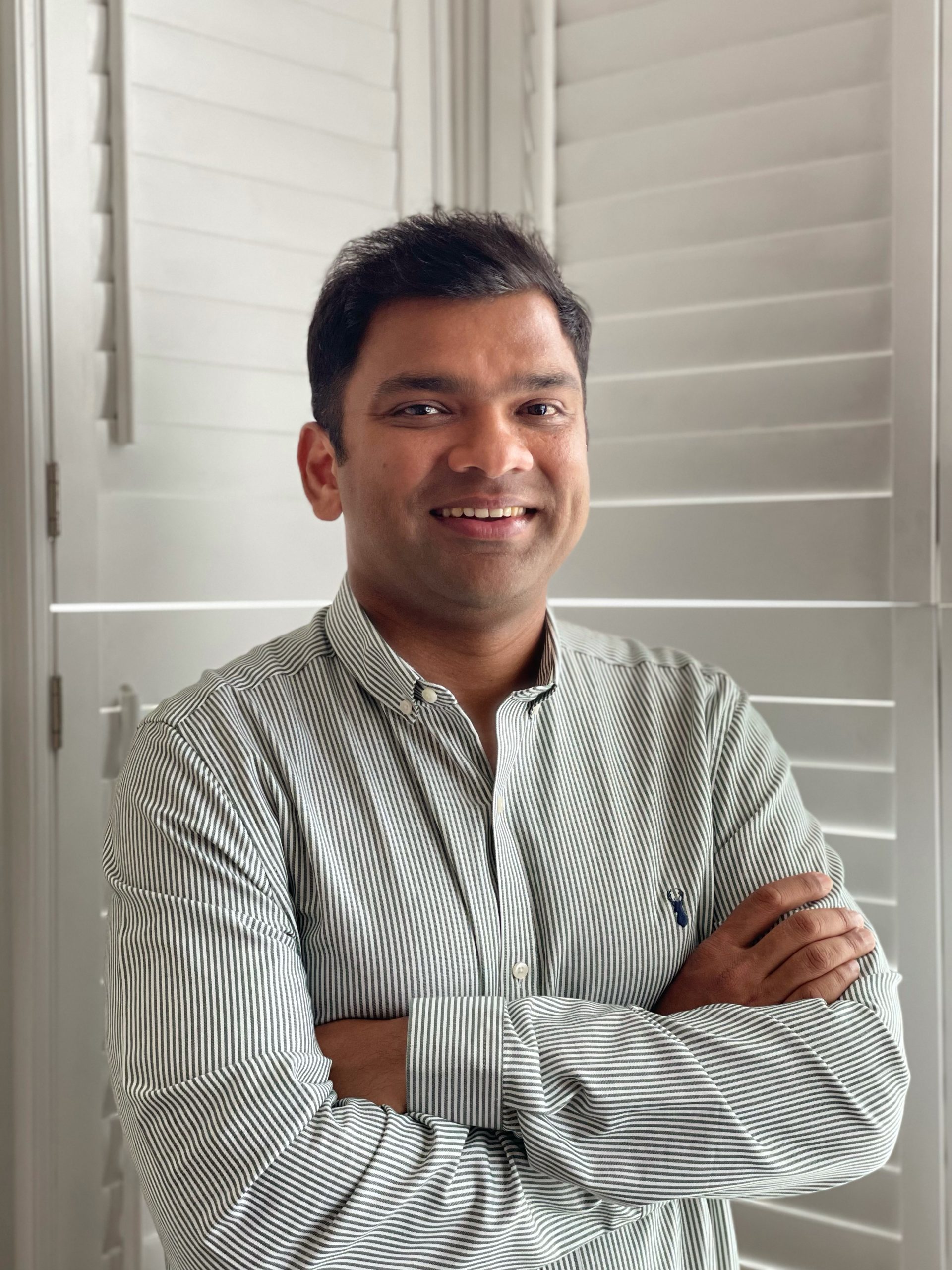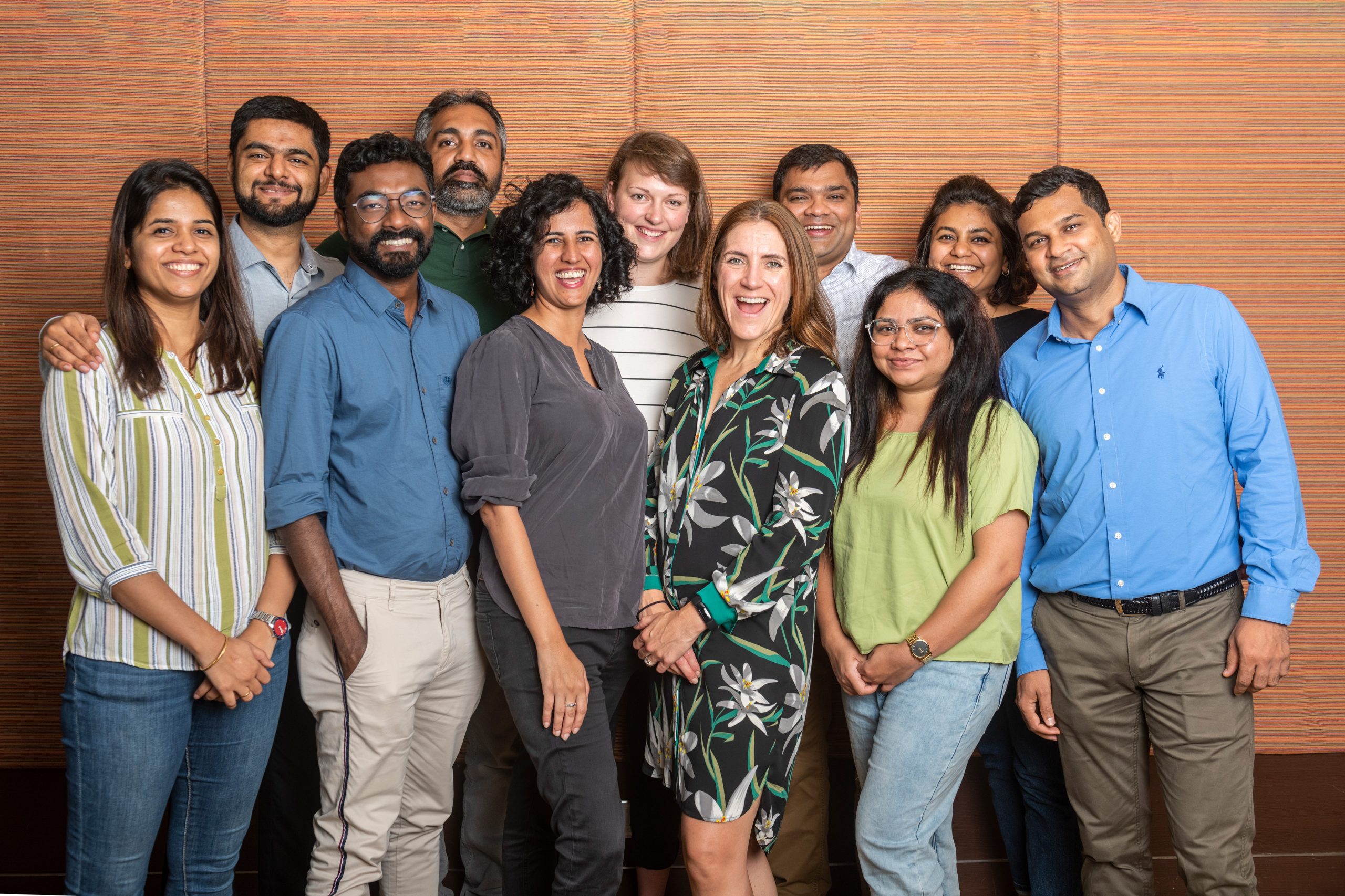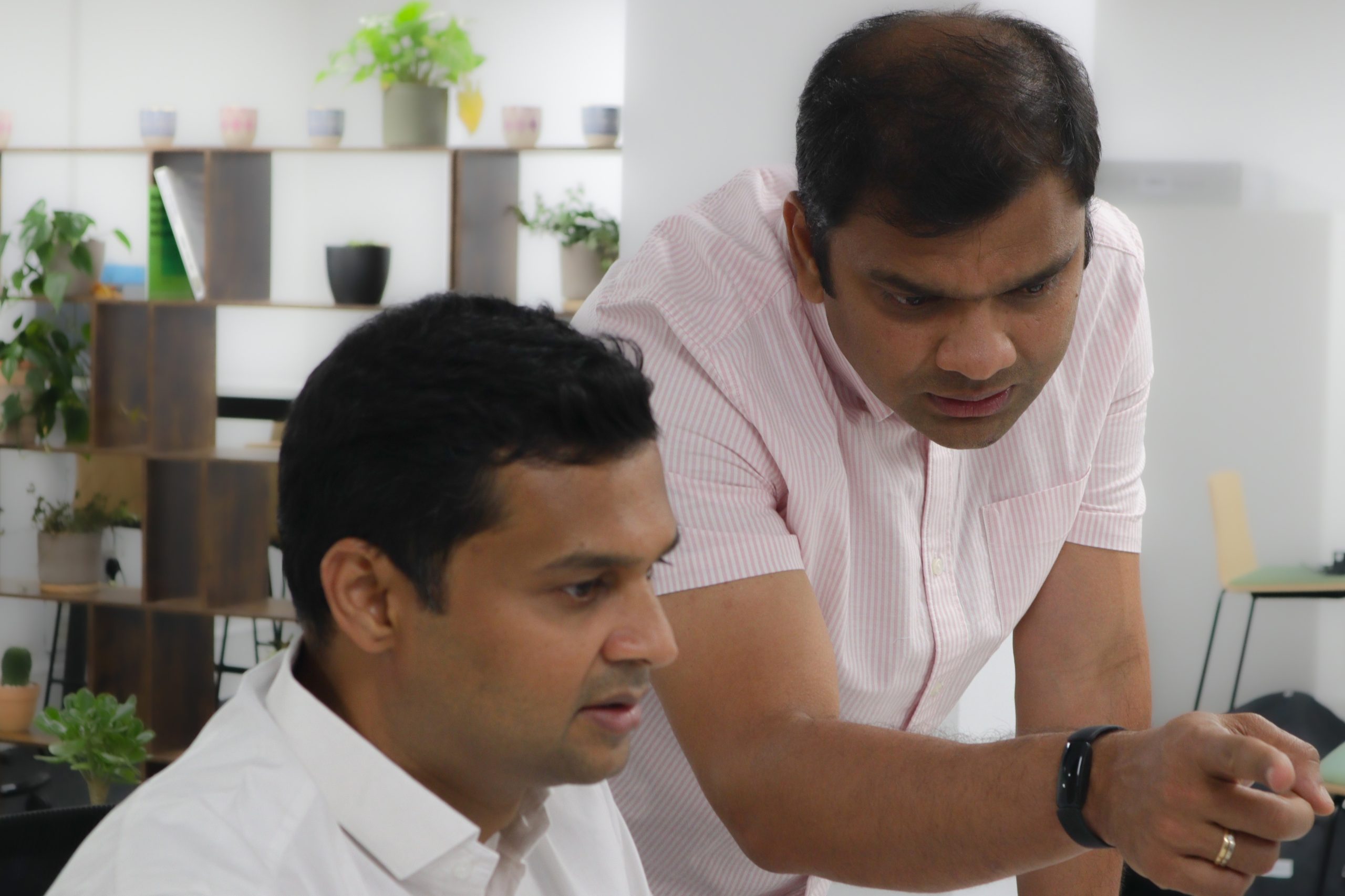(June 7, 2024) “M-Health, E-Health, we had lots of names for digital healthcare when I first started working in this space. It was very novel and a lot of people were sceptical,” Dr Nayan Kalnad says, as he connects with Global Indian from the UK, where he currently lives and runs his digital healthcare company, Avegen. “Do you remember when people said ‘digital banking’? Now, it’s just banking. You can do your banking work while you’re in a car on the way to the airport. That’s the kind of change we want to see in healthcare. There should be no distinction between digital and non-digital,” he says.
Seizing an opportunity
Dr Nayan’s first turning point came in 2007, when he was introduced to a technology that would change his approach to healthcare. It was an interactive voice response system, part of a pilot project to improve healthcare responses for HIV patients, many of whom avoided going to doctors because of the prevailing stigma. “At that stage, I saw the potential of what this could do, especially because due to my experience of working in clinics,” Dr Nayan explains.
Surrounded by scepticism, Dr Nayan decided to stick with his instincts anyway, and follow through on what he knew would come to become the future of healthcare. Today, Avegen operates around the world and its services have been used by over one million people globally. Their products include cardiac rehab apps, digital HIV-care programmes and maternity monitoring tools.

Dr Nayan Kalnad, CEO and co-founder, Avegen
From medicine to pharmaceuticals
Born in India, Dr Nayan Kalnad was raised in Mangalore, and studied medicine at Kasturba Medical College. He pivoted to pharmaceuticals, joining Pfizer, where he worked mainly in drug development before moving on to Johnson & Johnson.”I was working to improve care delivery for HIV-positive patients in India,” he recalls. They noticed that patients living with HIV, especially in rural areas, had very limited access to healthcare The stigma surrounding the illness was the main cause – Dr Nayan’s team found that HIV+ people preferred to avoid taking health issues to a doctor. “We wondered if we could use IT to solve this problem.”
This was around 2007-08 and the team decided to try an Interactive Voice Response system. The user could call a number, enter the number corresponding to the issue and pick out the symptoms. The system would use an algorithm to give them advice and its database already contained information on the drugs the patient had been taking. “The other part was to call the patient and educate them on living with HIV,” Dr Nayan explains. “What medicines should they take, what food should they eat? We created a data bank, back in those days. It was my first exposure to using IT within healthcare and I felt like digital technology could help solve challenges that patients, doctors and nurses face.”
The digital-healthcare dream
Dr Nayan moved to London to study at London Business School, after which he went back to J&J. By this time, the conglomerate had set up a team to examine how IT could be used in the healthcare context. “We built products for patients who needed cardiac rehabilitation, to try and reduce the risk of a repeat heart attack and to reduce the time heart patients spent in the hospital.” The project was piloted in four hospitals – three in the US and one in the UK, “another critical experience,” Dr Nayan says. Shortly after, he left J&J to co-found Avegen.
In 2015, Dr Nayan and Neeraj Apte, an engineer with over 20 years of experience in software development, came together to create Avegen. A couple of years were spent exploring the best business structure and fine-tuning their model, before dedicating their efforts to making Avegen the go-to development platform for scalable digital health products. “We were like any startup,” Dr Nayan says. “Our initial idea did not work.”
That idea was to build a virtual call center for doctors in India. “We were handling about 1 lakh calls per week,” he recalls. “It was a call center, basically and it took up all the oxygen in the room.” While they were meeting a need, it was not the purpose for which Avegen was created. It was also difficult to scale up. “We had to stop, pivot and return our focus to the original aim – building a digital platform. That pivot happened around 2019 and we re-branded.” This was when they build the platform that Avegen continues to use – HealthMachine enables healthcare providers and pharma companies to build, implement and scale their digital health products. It’s their way of helping democratise the creation of digital health products, removing the need for a large team and extensive investments in software engineering.

The Avegen team
Expanding the scope of healthcare
“Today we have digital health for pregnancy, HIV, TB, pulmonary arterial hypertension. We have around eight or nine conditions for which we build digital health products,” Dr Nayan says, adding, “We have hundreds of thousands of users every month and have deployed it in multiple countries, although our strongest presence is in Europe and India.”
Simply put, the idea is to make interaction easier, especially in countries like India where patients travel many miles to see a doctor. The pandemic only reinforced this need. One Avegen product, used by Europe’s largest HIV clinic, asks the patient to complete a questionnaire instead of setting up an appointment with a hospital. The information is sent to the clinic, where doctors can decide if the patient needs to come in to the hospital or not. “Often, patients come from very far away, only to be told that they are fine.”
Maternity care is another important pillar for Dr Nayan and Avegen. “India has a high maternal mortality rate and some of that is avoidable,” he explains. “Expecting mothers need to make regular visits, do blood tests and take folic acid supplements and follow an evidence-based care programme. We want to make it easier for them to do this.” Pregnant women need to download the app, which will tell them what to do based on how far along they are, and also connect them with experts. “Good health is not just about what happens within the four walls of the clinic. It’s about what happens outside of it. I can get my bloods done at a clinic, but when I go out, do I decrease the salt in my food, or get regular exercise? These are the main drivers of good health. We want to support patients outside and widen the scope of healthcare.”
Overcoming challenges
When he first started working in digital healthcare, people didn’t trust the concept. “The common understanding was that healthcare had to be face-to-face; they didn’t trust the digital tech, hence didn’t use it.” However, the COVID-19 pandemic changed the world’s perspective on digital healthcare overnight. “During the pandemic, digital products became essential to the functioning of the healthcare ecosystem,” Dr. Kalnad noted.
Avegen collaborated with government bodies and charities to provide digital healthcare solutions during the pandemic, such as supporting 30,000 HIV patients in Mumbai who couldn’t access their medication due to lockdowns. “We have come a long way since. In the coming decades, we will see digital health becoming mainstream,” Dr Nayan predicts.
The way forward
Despite the progress, Dr Nayan admits there is work to be done. “Scaling and integrating digital healthcare into the existing healthcare system is crucial,” he says, adding, “It needs to become accessible to everyone, regardless of their location or socioeconomic status. Digital health should not be for a certain segment of the population; it should be for everyone.”

This vision aligns with Avegen’s mission as well, which is to provide digital health solutions to all, irrespective of where they live or what healthcare challenges they face. “We believe that healthcare should be a fundamental right. We want to build digital health products that are relevant to the user, easy to use, and engaging. This is done through collaboration with healthcare providers, governments, non-profits, and other stakeholders to bring digital health products to the public.”
Nayan Kalnad’s journey is a testament to the power of innovation and technology in improving healthcare. His dedication to making healthcare accessible and affordable to everyone has inspired many, and his work with Avegen has shown that digital health services have the potential to transform the healthcare industry.
Follow Dr Nayan Kalnad on LinkedIn and check out Avegen’s work here.
Also Read: Dr. Santanu Paul: Transforming deep tech education in India with TalentSprint



